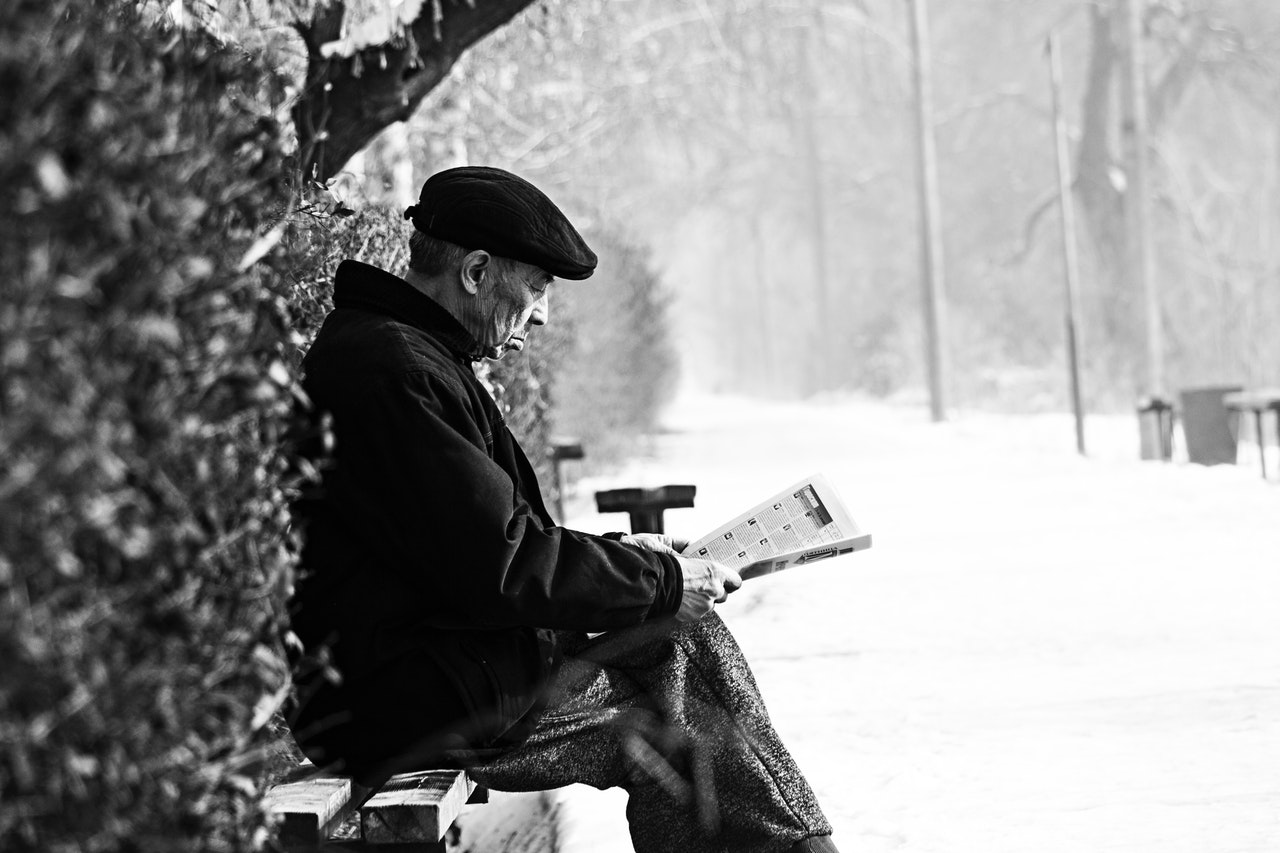Home Care Assistance is Changing the Way the World Ages. This is the latest installment of our “How To” series, where we lay out smart and easy-to-understand advice on navigating the aging process.
While the risk of falls – and related physical injuries – is a valid concern in winter, we can’t afford to ignore the emotional factors that come into play as we settle into the long, dark months ahead.
Shorter days and longer nights mean less daylight and dwindling Vitamin D. Dipping temperatures and unpredictable weather make it harder to get out and about. All of that can have a compound effect on a senior’s general health and well-being.
Putting deliberate thought into three key areas can help ensure you’re keeping everyone’s mood and emotional well-being on the up and up, even as the long Canadian winter stretches out before us:
- Keep an eye on “sundowning” as we say goodbye to daylight savings.
Seniors – particularly those suffering from dementia – can become agitated, or experience exacerbated behavioural disturbances – in the late afternoon or evening hours, as day shifts to night. Coined “sundowning”, the syndrome can become worse in late fall as people are now forced to adjust to the sun setting even earlier.
Something that might seem like a simple routine change for you (say eating dinner after dark as opposed to before) could feel much more challenging for a senior already experiencing sundowning. Research shows the effects of sundowning can actually be worse at this time of year.
Think about what might need to shift in their routine to help smooth their transition from day to night. Should you move dinner up by an hour? Ensure lamps turn on sooner? Encourage bathing earlier? Every senior, and every case of sundowning, is different. Take the time to assess how the shift in daylight hours may or may not be having a ripple effect on your loved one’s mood and behaviour, and build in subtle changes to help.
- Take note of the natural connection points that disappear as autumn turns to winter.
From sitting on the front porch and interacting with neighbours walking by, to attending community events in the warmth of the spring air: it’s easier to stay connected to other people when the weather cooperates.
As winter tends to limit mobility for seniors and even render some house-bound, isolation can become a greater risk. We know loneliness is bad for our health. Studies show a link between loneliness and all kinds of issues, from higher blood pressure to shorter life expectancy. Layer in the holiday factor in December, when many seniors have been shown to actually experience feelings of sadness as they long for what (and who) they might have lost, and the winter can feel isolating.
Don’t take social connectedness for granted. If your loved one typically counts on informal drop-by visits for social interaction, be sure to actually schedule these in during the winter months when weather can knock “pop by’s” off the radar. If visits aren’t feasible, build in a regularly scheduled call, or enable them with technology to allow for FaceTime or Skype chats where they can see and interact with you.
Create family gatherings that make it feasible for seniors to participate from a time of day perspective. Eliminate any transportation hurdles to up the chances of them attending.
Also this: don’t discount opportunities for your loved ones to connect through community activities, too. From a Sunday afternoon scrabble club at the local legion, to a book reading at the municipal library, seeking out opportunities to safely help your loved one feel connected through social activities can help keep feelings of isolation at bay.
- Find ways to build in enough fresh air.
A little fresh air can go a long way for someone’s mood. By November, that’s harder and harder to come by. There’s no denying cold weather is tough on the elderly. Still, there’s a benefit to finding the right ways for them to feel a little fresh air on their face, capitalize on the increasingly rare sunny day to soak up a bit of Vitamin D, and have a change of scenery.
In many northern cities around the world, community leaders are actually working to build towns and cities that are designed specifically to help residents – seniors included – live well in the winter through more accessible design. Closer to home, we know how difficult even a walk down the sidewalk can become once winter holds us in its grasp. But there’s no denying the upside of even small doses of fresh air.
Knowing what type of outdoor exposure would work for your loved one should be your guiding principle. From there, finding small ways to get them outside between now and spring doesn’t have to be complicated. Anything as simple as capitalizing on a slightly warmer or sunnier day, and making that the afternoon you help them dress for the weather, accompany them to the car and head to the mall, can make a difference. On the flip side, always confirm they’re safe and sound in the comfort of their own home at the end of the outing.
Closing thoughts
Getting through winter can be physically challenging and emotionally draining. Paying close attention to both sides of the proverbial coin can help ensure that your loved one feels as good as possible while the cold wind’s blowing.
References:
National Seniors Council / Government of Canada
American Journal of Psychiatry
Proceedings of the National Academy of Sciences of the United States of America

